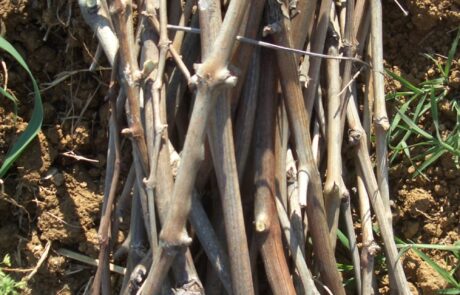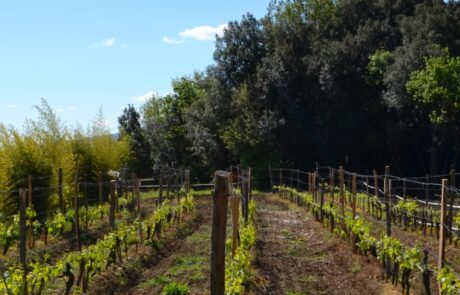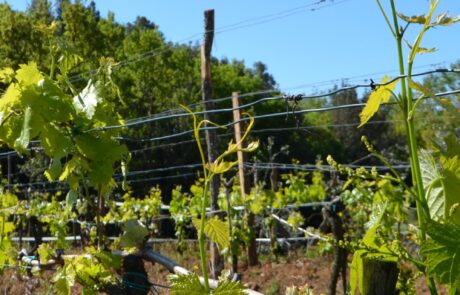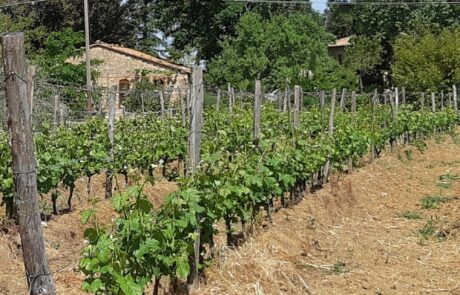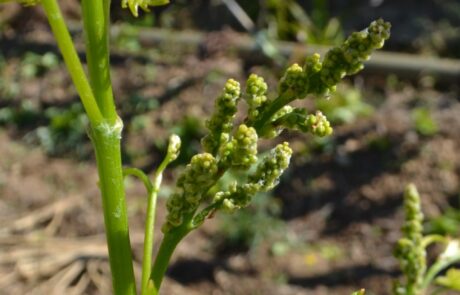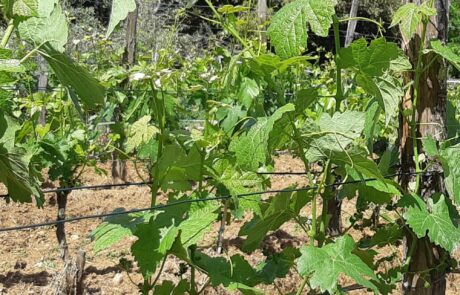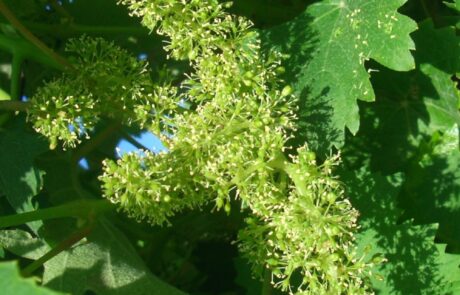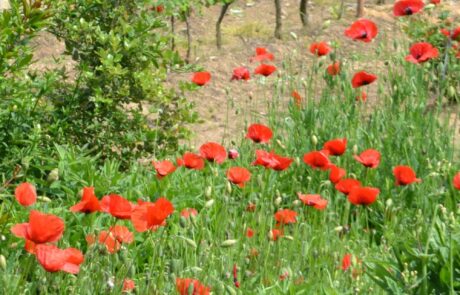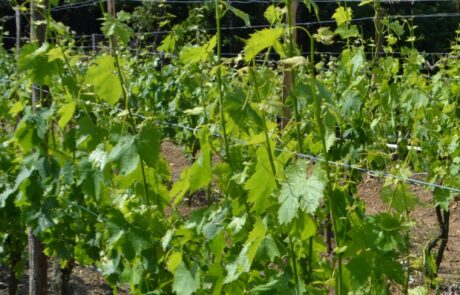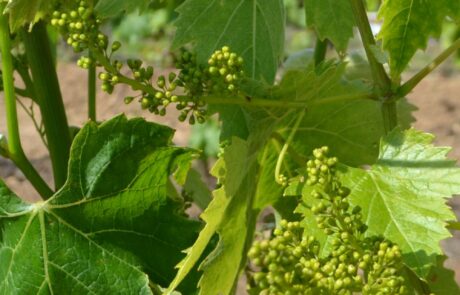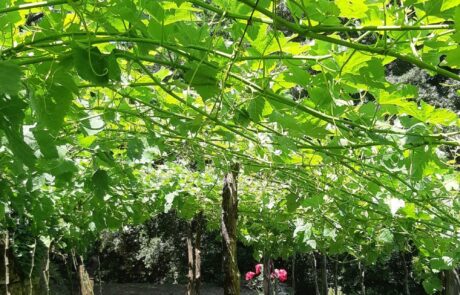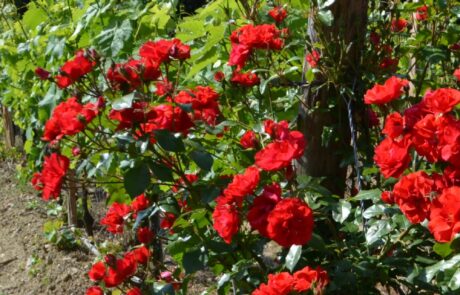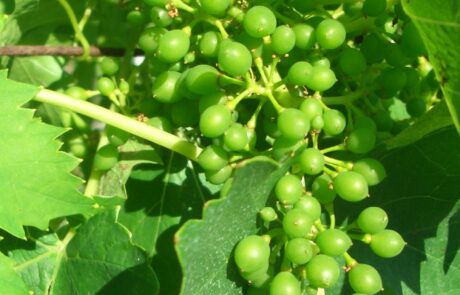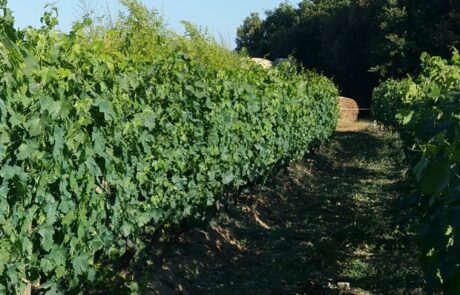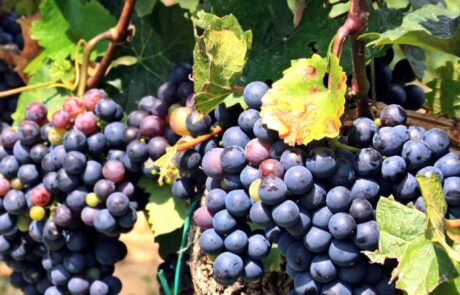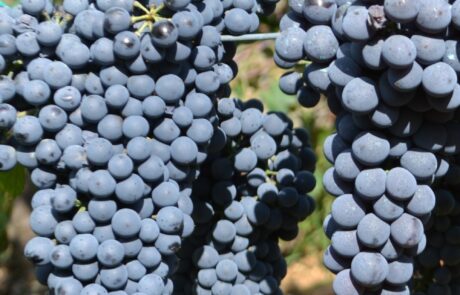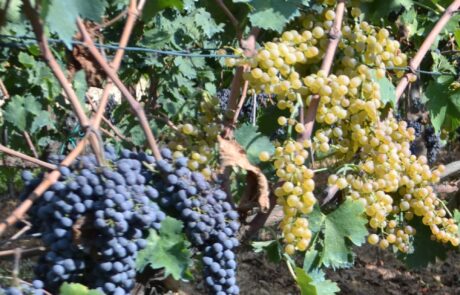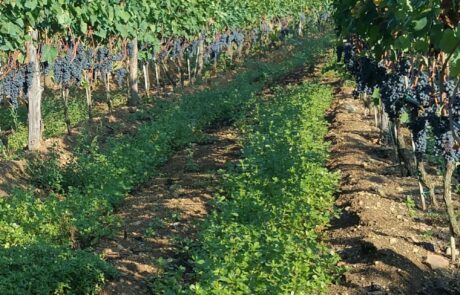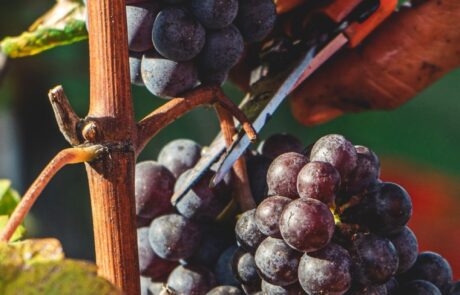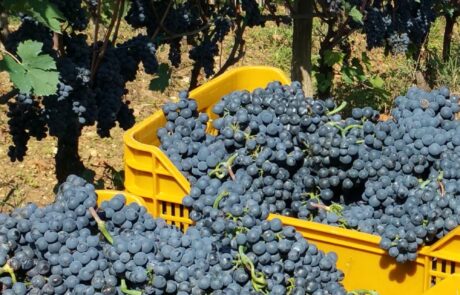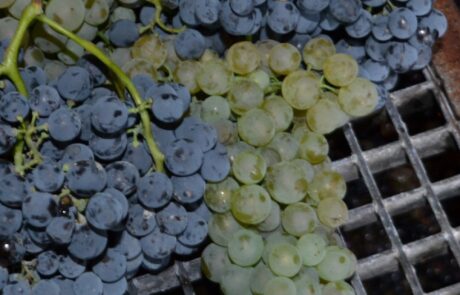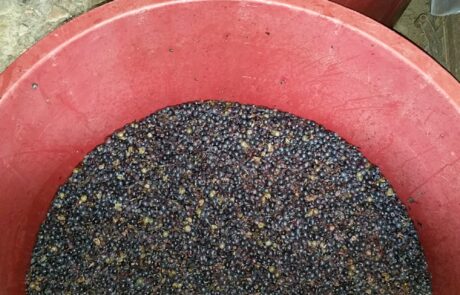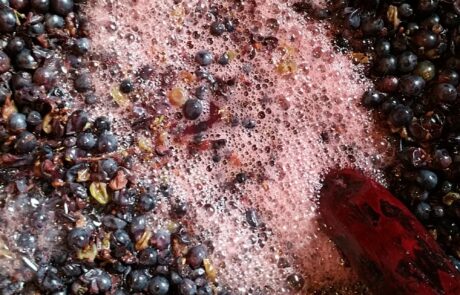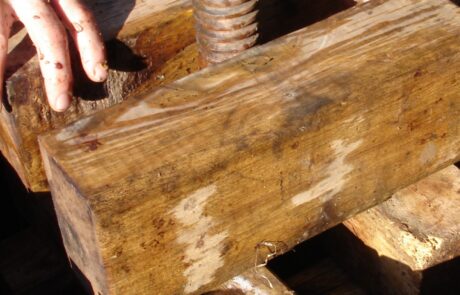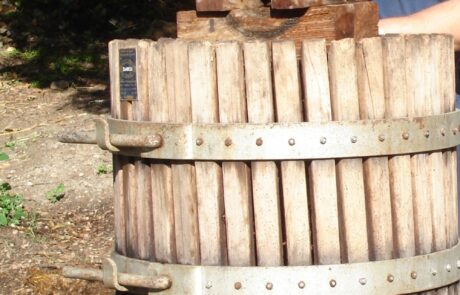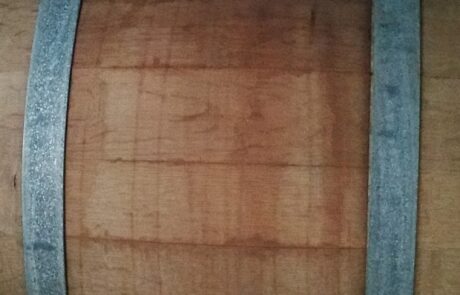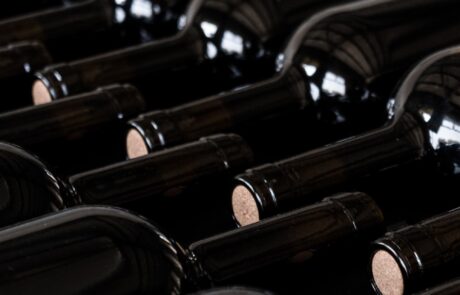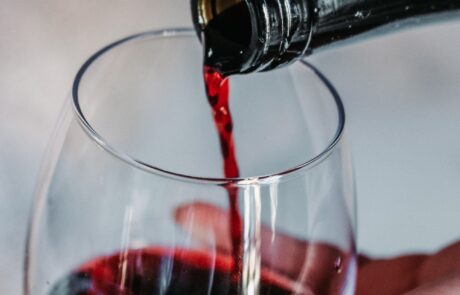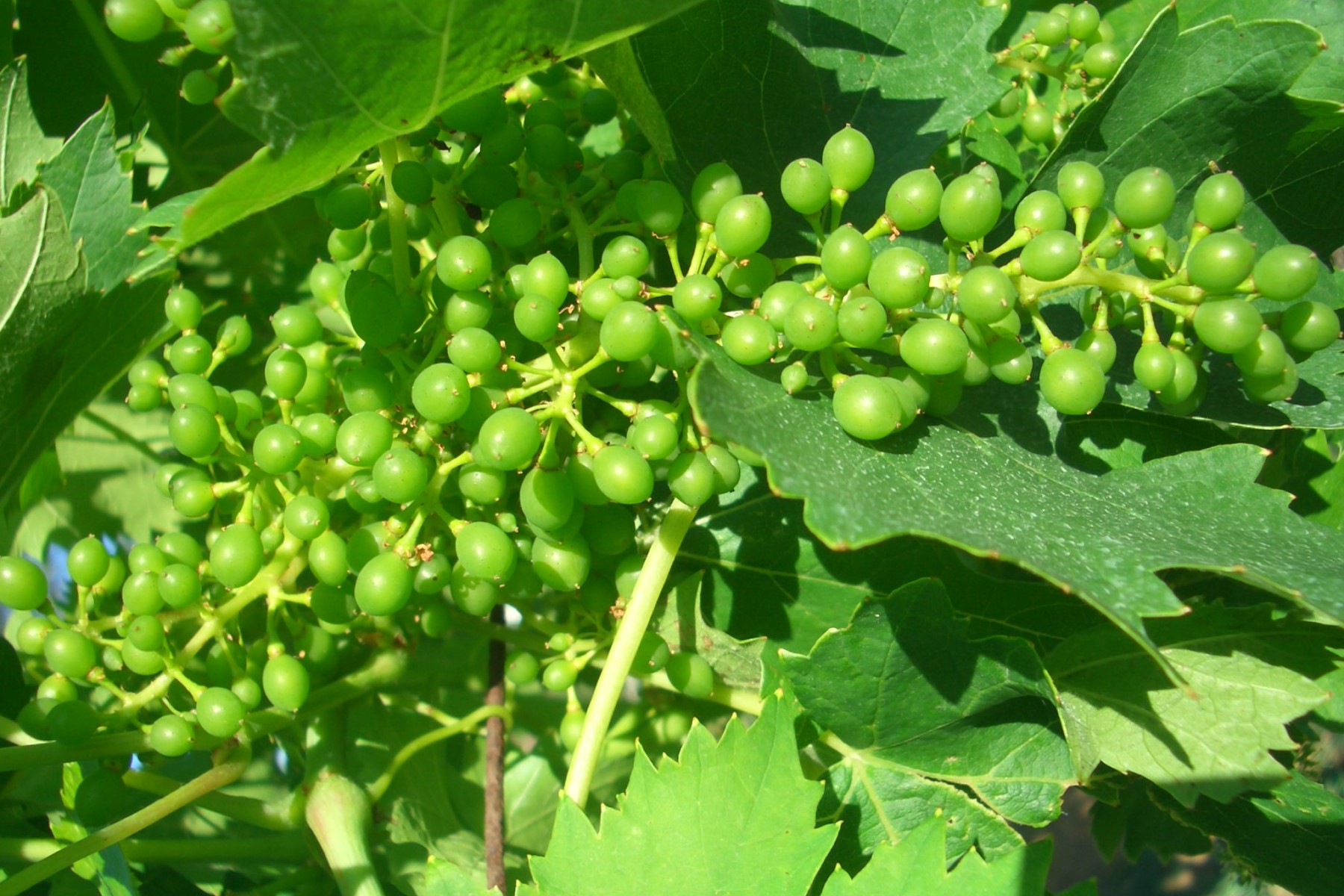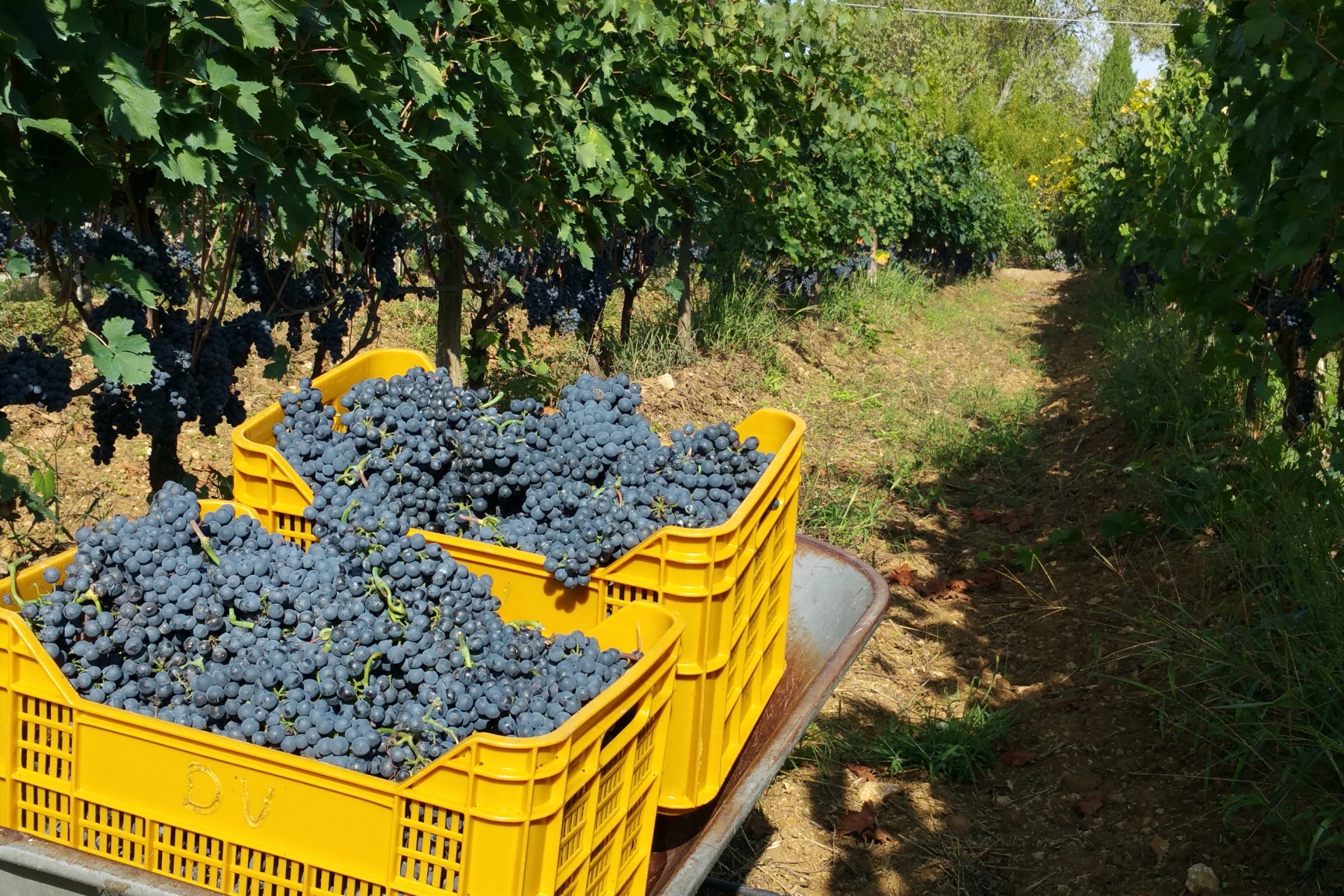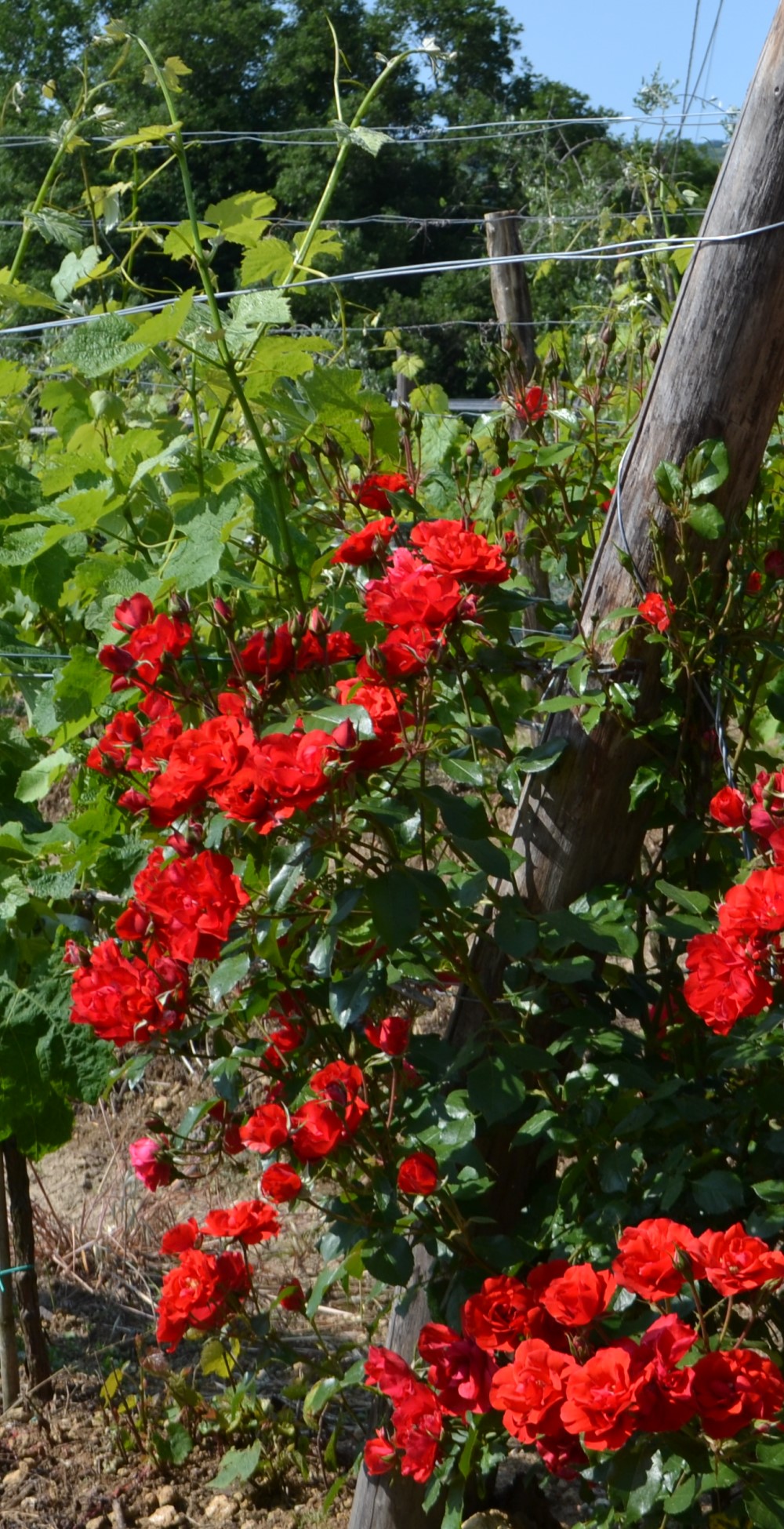
Italian wine Chianti style
Our small winery in Tuscany is geographically located on the edge of the DOCG Chianti Colline Pisane wine-growing region. The label Chianti wine was first mentioned in documents by Florentine traders in 1398. Today, Chianti stands for an intense, elegant red wine made from at least 70% of the typical Sangiovese grapes of Tuscany. In keeping with this tradition, the vineyard at Podere Palazzone until the beginning of this century consisted of Sangiovese and Prugnolo. On our clay soils these approximately 70-year-old vines deliver a ruby-red, balanced, pleasantly tannic wine with aromas of cherry and blackberry. However, we have developed the bouquet of our wine over the last years and making it even more pleasant on the palate. Above all, with the intention of highlighting its freshness and fruitiness. Therefore, we have expanded the vineyard by 20% with Syrah grapes. Syrah is a variety originating in ancient Persia, the cradle of viticulture. As a result, the bouquet of our red Italian wine is now enhanced with spicy notes of pepper, cloves and violets.
Organic wine
The small vineyard of Agriturismo Palazzone produces organic wine exclusively for family enjoyment and for the guests of our holiday home. As on our entire organic farm, we do not use chemical fertilizers in our winegrowing either. Also, we limit plant protection to a minimum and apply the traditional Bordeaux broth, permitted in organic viticulture, in an extremely targeted manner. In the photo gallery below you can follow the single steps of work on our winery. It starts with the winter pruning, shows the growth of the shoots, the blossoming, the development of the grapes until ripeness and finally the harvest. It follows fermentation, ageing in barriques and bottling, until finally it’s time to say: Alla salute!
Handmade Italian wine
On our winery in Tuscany, grape harvest takes place in the second half of September. Guests of the holiday home are warmly invited to participate. The entire processing is done by hand. In particular, we destem the grapes over a trellis and separate them from their stems. This manual procedure is very time-consuming. However, this guarantees maximum quality control and sorting out of defective berries. The following fermentation is initiated exclusively by the natural sugar yeasts on the grapes. Of course, we completely refrain from adding cultured yeasts or sugar in the further process.
Aerobic alcoholic fermentation takes place in open vats. After about 10 days, the young wine reaches an alcohol content between 12° and 13°. The mash is then separated and the spent grains are pressed in an old manual wooden press. During a further 2 weeks, the turbid matter deposits on the bottom. Then, part of the wine goes for ageing in a classic 225 litre barrique barrel. The rest, instead, matures in typical 54 litre demijohns. We do not add sulphite to our wine. It is unfiltered and therefore particularly full and round in taste.
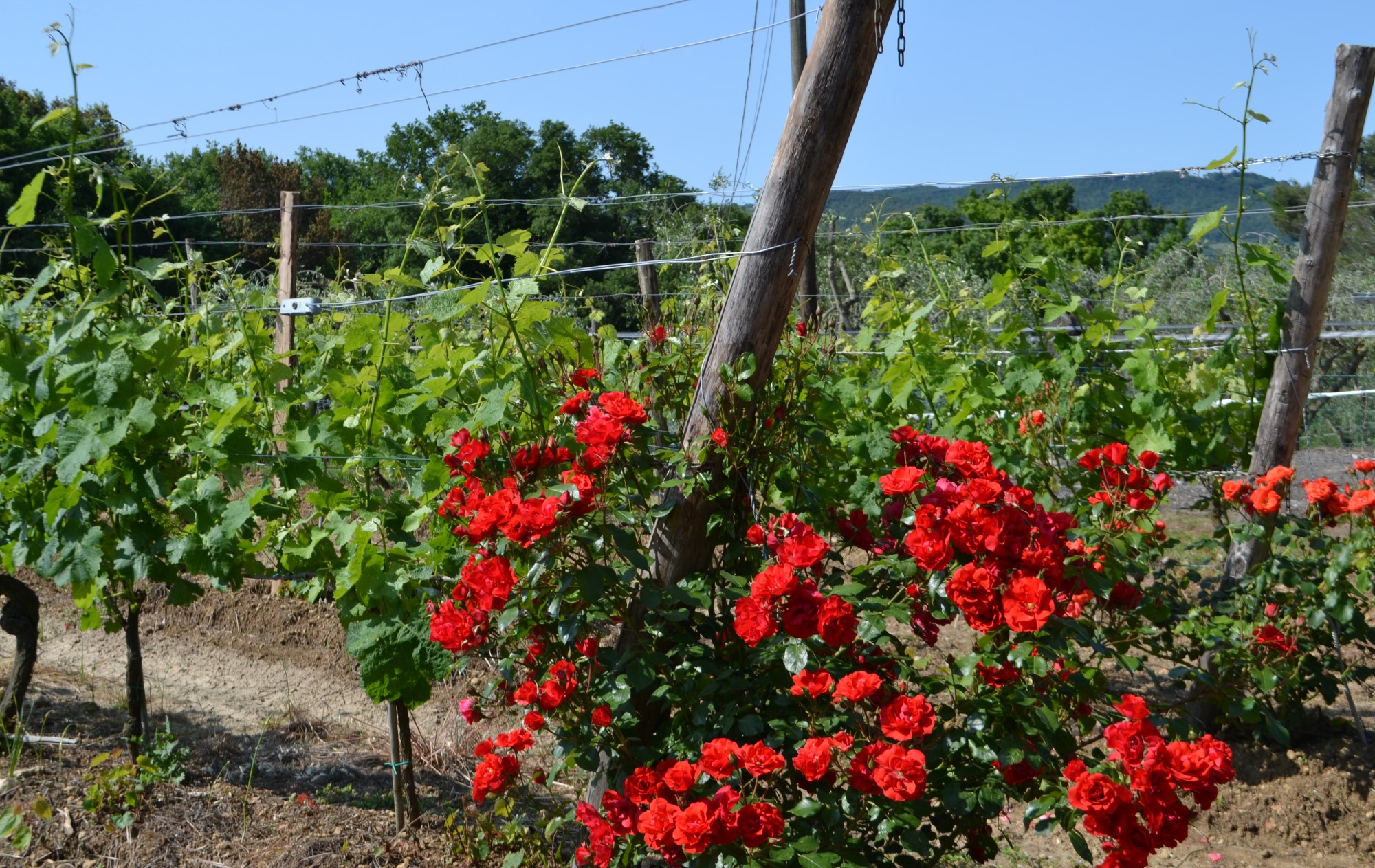
Organic Italian wine Chianti style
Historical vineyard with a modern touch
Our small winery in Tuscany is geographically located on the edge of the DOCG Chianti Colline Pisane wine-growing region. The label Chianti wine was first mentioned in documents by Florentine traders in 1398. Today, Chianti stands for an intense, elegant red wine made from at least 70% of the typical Sangiovese grapes of Tuscany. In keeping with this tradition, the vineyard at Podere Palazzone until the beginning of this century consisted of Sangiovese and Prugnolo. On our clay soils these approximately 70-year-old vines deliver a ruby-red, balanced, pleasantly tannic wine with aromas of cherry and blackberry. However, we have developed the bouquet of our wine over the last years and making it even more pleasant on the palate. Above all, with the intention of highlighting its freshness and fruitiness. Therefore, we have expanded the vineyard by 20% with Syrah grapes. Syrah is a variety originating in ancient Persia, the cradle of viticulture. As a result, the bouquet of our red Italian wine is now enhanced with spicy notes of pepper, cloves and violets.
Organic wine in Tuscany
The small vineyard of Agriturismo Palazzone produces organic wine exclusively for family enjoyment and for the guests of our holiday home. As on our entire organic farm, we do not use chemical fertilizers in our winegrowing either. Also, we limit plant protection to a minimum and apply the traditional Bordeaux broth, permitted in organic viticulture, in an extremely targeted manner.
Handmade Italian wine
On our winery in Tuscany, grape harvest takes place in the second half of September. Guests of the holiday home are warmly invited to participate. The entire processing is done by hand. In particular, we destem the grapes over a trellis and separate them from their stems. This manual procedure is very time-consuming. However, this guarantees maximum quality control and sorting out of defective berries. The following fermentation is initiated exclusively by the natural sugar yeasts on the grapes. Of course, we completely refrain from adding cultured yeasts or sugar in the further process.
Vinification
Aerobic alcoholic fermentation takes place in open vats. After about 10 days, the young wine reaches an alcohol content between 12° and 13°. The mash is then separated and the spent grains are pressed in an old manual wooden press. During a further 2 weeks, the turbid matter deposits on the bottom. Then, part of the wine goes for ageing in a classic 225 litre barrique barrel. The rest, instead, matures in typical 54 litre demijohns. We do not add sulphite to our wine. It is unfiltered and therefore particularly full and round in taste.
In the photo gallery above you can follow the single steps of work on our winery. It starts with the winter pruning, shows the growth of the shoots, the blossoming, the development of the grapes until ripeness and finally the harvest. It follows fermentation, ageing in barriques and bottling, until finally it’s time to say: Alla salute!




